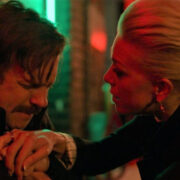Interview With Rod Armstrong, San Francisco International Film Festival Programmer
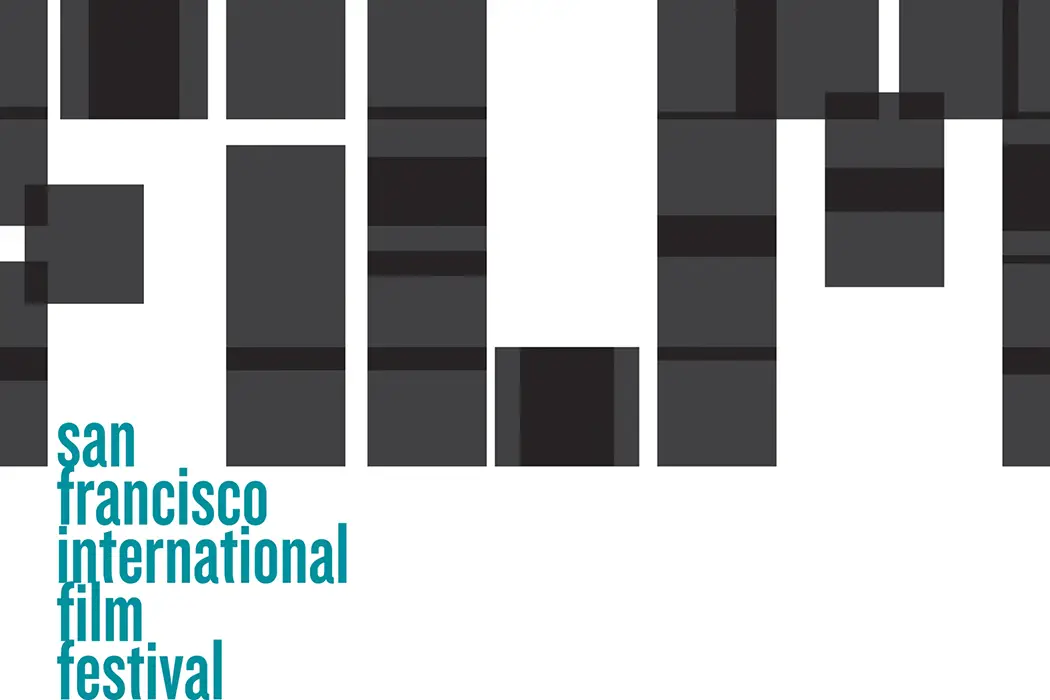
Arlin is an all-around film person in Oakland, CA. He…
Film Festivals are known for their red carpets, galas and blockbuster distribution deals, so it can be easy to forget that there’s a lot of unglamorous work that goes into these relatively brief cinematic outbursts. Most central to that work is the programming, which to the casual observer may seem just as glamorous; “you get to watch movies for work?? lucky!” But in reality, festival programming consists of months of watching mediocre to sub-par films in the hopes of unearthing some undersign gems. If they are successful, then their work is invisible, hence their lack of wider acknowledgement.
I hope to change that a little bit by revealing some of the year-round work that goes into programming a major film festival. I was lucky enough to attend this year’s 60th annual San Francisco International Film Festival, and one of its programmers, Rod Armstrong, was kind enough to talk with me about his work and what it takes to put together a program of over 150 films.
Arlin Golden for Film Inquiry: Congratulations on a very successful festival! I definitely had a ball and didn’t even come close to seeing all the films I wanted to, so great program!
Rod Armstrong: So we left you wanting more.
Absolutely, to say the least. So to start, I’m curious how you found your way to festival programming?
Rod Armstrong: Gosh, I guess a little roundabout but not super roundabout, in that I had volunteered for the festival back when I was in college. Then I went on to work for a website that wrote about film for a while, and then when that finished I looked at organizations in the Bay Area that were of interest, and of course what was at that time the San Francisco Film Society was one of the most interesting. So I came on as a publicist. Ended up talking to the director of programming about exactly what programming entailed, and then we ended up crafting a job for me.
Wow, that’s amazing, seems like you fell into what seems to be a calling. How long have you been programming with the festival?
Rod Armstrong: This was my 12th.
Awesome, congratulations. How many programmers are there aside from yourself?
Rod Armstrong: So we have the director of programming, Rachel Rosen, we have another programmer who just started this year, Amanda Salazar, and then we also have Audrey Chang who is associate programmer and the manager of the GTA process.
How does that collaboration work? Everyone has their own tastes; is there sort of an overarching theme or goal for the festival?
Rod Armstrong: Not really. We’re pretty amiable people and enough of us have worked together or at the very least at other festivals that you know that the idea is not necessarily to show all of the films you love, but it’s more about finding the right balance and finding the right range. Just…films with diverse topics and films from different countries and kind of balancing marquee type films with movie stars and esoteric films from Bulgaria, for example.
How much do those other factors you mentioned weigh against the overall quality or enjoyment of a film? If you get something you guys really like but you already have something that covers that area…
Rod Armstrong: Sure, then that’s just something that you talk about. Sometimes both of those films will make it into the festival, sometimes you have to choose one and sometimes those choices aren’t always easy because a variety of factors play in. So let’s say there are already a number of good French films in the program, and there are two films with similar subject matter, one of them is from France and one of them is from Bolivia. The Bolivian film is probably going to edge out the French film if you already have a number of French films in the program and you have very few or no Bolivian films.
That makes sense. With your festival happening in the spring, one of the two peak seasons for film festivals, there’s so many going on, how aware are you of the other major festival programs going on and how much do you feel the need to either incorporate films from those festivals or respond to those lineups in your own programming?
Rod Armstrong: I think we feel pretty individual about our lineup. Timing used to matter a little bit more because, of course, it was about circulating exhibition copies. You had film prints, and maybe there were only one or two film prints. So sometimes that would prevent you from showing a film, or at the very least you would have to show the film between a certain window of time. Now that an overwhelming majority of the titles are on DCP, and people can make multiple DCPs fairly inexpensively, that part fitting into your decision-making is very slight or nonexistent.
Now we talk to other festivals more about guests, so if there’s another festival close to ours we talk about sharing the guests. And maybe we can collaborate on expenses a little more creatively, and everybody wins. That said, I should get back to the other part of your question, which was how much we pay attention, and I kind of got at it, but we would be remiss if we didn’t look at the programs of other festivals, certainly leading up to and following our festival, just to see “Hey, is there something out there we don’t know about? Hey, is there something out there that everybody’s showing but that we maybe didn’t respond to and maybe we should talk about that film again”. So I think that that’s the other piece you were perhaps getting at.
Well, I was thinking specifically…I focused at the festival mostly on documentaries, and I’m reviewing a lot of festival lineups and definitely noted a lot of the world premiere films from Sundance in the documentary category showing up at the festival here. So I was just wondering, you know, when you see that, is that sort of like “Oh, I should look into this film, I should check that out?” Is that kind of how it starts? I mean, obviously with films like The Force you’re already well aware of beforehand, but once something has buzz does that sort of add another extra “oomph” to it?
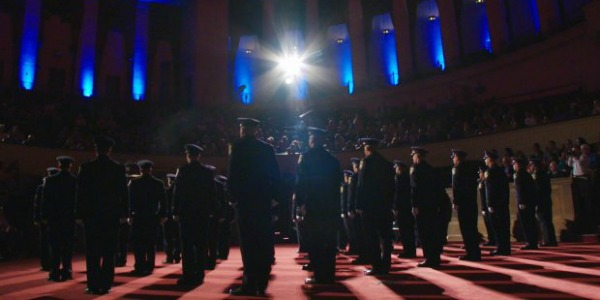
Rod Armstrong: Yeah, I mean if a lot of festivals are showing a particular title, or like you say it creates a groundswell of support, whether it’s critical support or it’s just people are out there talking about the movie, certainly that factors into talking about the film and its relevance to our festival.
In looking at other festivals, how much of the program would you say is scouted versus how much comes to you from submissions on WithoutABox, for instance?
Rod Armstrong: Sure. Short films…I’m glad my co-worker Audrey is sitting right across from me because I’m going to throw out a number and see if she nods at me. I would say 90% of the short films come through WithoutABox? [To Audrey] Yeah? Ok, she feels good about that number. And 10% scouting. And then for features, it’s much lower. I would say…I mean it’s also difficult sometimes to gauge…a movie you brought up like The Force, we of course know that Pete Nicks has been working on this movie so we’re in touch with him just making sure he’s going to submit it, so coming to terms with whether that’s a submitted film or a solicited film is a little tricky because if we had been silent he probably would’ve submitted it regardless because it means so much to the local community, but at the same time we are soliciting it because we want to show our interest in it. And especially with a local filmmaker who we know are working on projects or who have been associated with our artist development program or who have made films that have shown at the festival in the past. But that said, I would put the number for features at maybe…let’s see we had 125 programs…I would maybe say 10%.
Ok, that seems fair. I’ve done a little bit of programming, and obvious with WithoutABox and FilmFreeway, it’s easier than ever to submit, you don’t have to print out a packet and send over a VHS tape or anything like that, so…
Rod Armstrong: Right, and also with the democratization of…cameras and editing software, basically the fact that making a film has become easier than it was in the past, probably significantly so, that means that quantity is uno, but that doesn’t necessarily match with quality.
Oh yeah, no doubt. So with that in mind, do you have any advice for folks that are submitted to you on WithoutABox to sort of stand out from the sea?
Rod Armstrong: I mean, we’re diligent about making sure every movie gets its fair shake. So, there’s nothing that necessarily a person can do with his or her or their entry that will draw it to our attention more, because the whole idea is that ‘Hey, we do aim to find the piece of gold hidden in the haystack”. And I actually, and I think many of my colleagues, find it a little annoying if people are constantly barraging you: “my film just got into this festival” “I just wanted to let you know an update about my film”. That doesn’t necessarily help your case.
No, I wouldn’t imagine so. Given the current atmosphere, do you feel any sort of desire in your program to respond to current events or engage in a dialogue about all the things going on?
Rod Armstrong: Yeah, I mean we had, as you probably noticed, three free / one of them was meant to be a community screening, just to kind of be a part of that conversation. I think looking at movies from countries that are being maligned is really important in these times. I think those are the two ways that..and also just being an advocate for international travel. Part of the reason that film festivals are so wonderful is that it gives audiences a chance to speak with filmmakers from all around the world, and if some filmmakers from some countries are being prevented from presenting their films abroad then that’s a disservice to cinema and a disservice to festival audiences. So we want to be advocates for that access.
How, if at all, does the programming team approach documentaries different than fiction? I assume first and foremost that you’re just looking for enjoyable films and quality. But with documentary there’s such a sort of “now” element to it, a lot them deal with things that are still happening beyond the film itself, going back to The Force or any number of the films, even like Bill Nye, if something sort of has that “now” factor for a documentary…I mean, do you see a difference between documentary and fiction in programming or is it just all “the best film wins”?
Rod Armstrong: I think in most cases the best film wins, but there are certain circumstances that do have to do with current events or where we are geographically that makes sense. But I think that holds true for documentary or for narrative films. The second part of that that we’ve been doing more and more of at the festival is what we’ve been calling “collaborations”, which is where we’re incorporating local people involved in the particular issue or issues of the film to have a moderated conversation, hopefully with the director of the film, to kind of take the film a step forward.
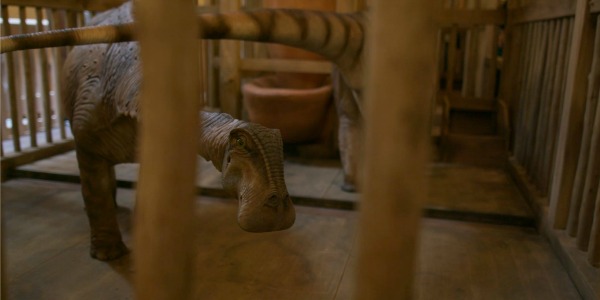
Ultimately, building a program like yours is curation, and it’s taste-based and it’s subjective, and I’m just curious as an individual, do you have sort of a style or ethic or something about a film that really speaks to you that you like to put in the program to kind of put your personal stamp on it?
Rod Armstrong: You know it’s funny, because I’m sure every one of us, meaning programmers, gets asked multiple times during the festival “was this a film you picked?” and it’s kind of impossible to say, because I do feel that it is so collaborative. I mean I do have one section called “dark wave” that’s kind of the midnight movie, but we don’t show them at midnight, section of the festival that I’m predominantly responsible for. That quartet of programs (it’s usually four). But for the most part I don’t think there is an individual stamp that makes a movie in the program attributable to any one person.
Can you elaborate on that? Maybe take me through what the collaboration is? Say someone has a really strong opinion about a film one way, a couple others aren’t so sure, someone else is really against it. How do you guys eventually come to terms there?
Rod Armstrong: I mean, it’s different ways for different films because even if, and I’m trying to think of an example in this festival…ok, I can think of one, and I’m not going to name the name of the film. Sometimes you just engage to external community of film experts and you say “Well, the experts seem to agree that this is a good film”, therefore I’ll put my personal prejudices aside and say “yes, we should have it in the program”. Other times, especially if there are let’s say two dissenting voices against two people who like the film, then it becomes more a case of providing the argument for and against and seeing where people fall, see if one of those two minds gets changed and veers more in the other direction.
In all of the twelve years I’ve done here, I mean maybe there’s been, and I’m counting all of the twelve years, maybe 3-5 films that I personally still go back and think “ok, well we were wrong not to show that movie.”
That’s a pretty good track record.
Rod Armstrong: Yeah!
How much, and I know it’s a lot, but how much are you guys thinking about time considerations? Do you have any flexibility there, or do you have sort of a certain amount of hours and once it’s filled that’s it?
Rod Armstrong: Do you mean as far as how many films we show throughout the day?
Just throughout the festival. You know, how many screenings a day? Do the venues sort of work with you on program, or do they tell you what they have available and then you’re sort of working within those constraints?
Rod Armstrong: Yeah, it depends on the venue. This year we were using a couple of union houses, Yerba Buena is a union house, and those have particular time constraints, so we just factor that in. We work closely with the operations department as far as “ok, on this day at this venue you can fit 2-3 films. Over here at this venue since we can open the box office at 11 am and don’t have to close till midnight, you can probably do 4 films.” So it’s really venue dependent. And then as far as our hopes and desires, I just think we’ve been doing this for a number of years now and we have a pretty good sense of what the dynamics of the city will contain before we’re kind of over-saturating.
I’m curious, if there was some super devoted person out there with no job and independently wealthy, is it possible for them to see every film in the festival, with the multiple screenings and all?
Rod Armstrong: (laughs) I don’t think so.
Well that makes me feel better about myself then.
Rod Armstrong: I mean, I think the devoté would have to, I mean at that point it’s not really about devotion so much as completion, that collector instinct, but they would have to separate out all of the films that are going to get some kind of distribution and say “ok, well I’ll catch up with those then.” Then you have the one-off programs where either they’re live and on stage or the tribute programs, and you just determine the ones you really have to see, because of your own personal interest, and then you combine that with the films you may not have a chance to see again and I still think you couldn’t get to every one.
It really didn’t seem like it, I had a spreadsheet going and everything. With the festival ending last week, what now? Are you guys already looking towards 2018? What do you guys do for the interim?
Rod Armstrong: Well Cannes is right around the corner, so Rachel and our executive director are going to Cannes. So that starts the process. We also are working on our Modern Cinema program with SFMOMA and are starting to think about what we’re going to do in the fall, where we’ve had a number of programs that have happened yearly. Probably the ones we’re going to go back to would be Doc Stories and Hong Kong Cinema, and then we may add one or two more.
That seems like that’s something that’s really unique about SF film, that you have these year-long programs and engagements throughout the city. Obviously, the international films festival is sort of the crown jewel, but as you expand your activities through San Francisco…it’s a full-time job, right?
Rod Armstrong: Yeah.
Yeah. So how do you balance the programs? Do things sort of come to you at the end of the year where you’re like “oh man, this is going to be perfect for Doc Stories but maybe I want to save this for the main film festival”?
Rod Armstrong: Yea, that sometimes happens. And then it becomes a conversation as much within the programming department as it does with the sales agent and distributor of the film. “Hey, what makes the most sense as far as the plans you have for the film? Is Doc Stories the platform you want to go with because you’re trying to qualify for the Academy Awards for best Documentary Film? Or are you planning a late spring release, in which case the festival might be the way to go.” So a movie like I Am Not Your Negro; so that’s a film that I believe debuted in Toronto, that was certainly where I saw it and where Rachel saw it and we knew it was a film that we loved. So then it just becomes “Ok well, who’s going to distribute that film? When are they going to distribute that film? Can we show it? And if yes, we can show it, what particular platform makes the most sense for them?”
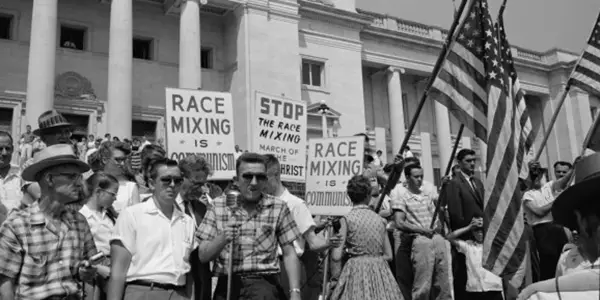
Speaking of platforms, it seems that in conventional cinemas, theater owners are sort of wringing their hands over the oncoming…people have been talking about the death of film-going for years now. The festival programmed a few films from Netflix. How do you view the festival continuing to thrive in the future in the face of declining film viewership?
Rod Armstrong: Well, I mean we see our attendance go up so as long as that happens we’re not apt to say that the sky is falling. I think that the festival provides a unique experience to watch the movie that isn’t the same as Netflix or watching on some kind of streaming service. The fact that you can see it with an audience, the fact that you can see it with the director, the fact that you’re not interrupted by phone calls or kids hopefully, unless you brought your kids to the movie, or cooking necessities or things like that. That you’re there to watch and absorb and hopefully be entertained and/or enlightened and/or all the good things that the best of cinema can bring.
Awesome. Well, with that thank you again for taking the time to talk to me, thank you again for programming a terrific festival; I’m still coming down from that high, still talking to filmmakers who I didn’t get a chance to meet with at the festival, so yeah, just thank you.
Rod Armstrong: Cool, no problem! Good to talk to you, see you next year.
Does content like this matter to you?
Become a Member and support film journalism. Unlock access to all of Film Inquiry`s great articles. Join a community of like-minded readers who are passionate about cinema - get access to our private members Network, give back to independent filmmakers, and more.
Arlin is an all-around film person in Oakland, CA. He received his BA in Film Studies in 2010, is a documentary distributor and filmmaker, and runs Drunken Film Fest Oakland. He rarely dreams, but the most frequent ones are the ones where it's finals and he hasn't been to class all semester. He hopes one day that the world recognizes the many values of the siesta system.






